In the dynamic world of logistics and transportation, understanding and optimizing tanker truck volume is pivotal for ensuring efficient operations, reducing costs, and maintaining safety standards. At CarMax Vehicle, we specialize in manufacturing high-quality tanker trailers that cater to diverse industry needs. This comprehensive guide delves into the intricacies of tanker truck volume, offering valuable insights to enhance your fleet’s performance.
Understanding Tanker Truck Volume
Tanker truck volume refers to the internal capacity of a tanker trailer, typically measured in gallons or liters. It determines the amount of liquid, gas, or other materials that can be transported in a single trip. Proper management of tanker truck volume is essential for maximizing payload, minimizing fuel consumption, and adhering to transportation regulations.
Importance of Tanker Truck Volume in Logistics
- Efficiency: Optimal volume utilization ensures that each trip carries the maximum allowable load, reducing the number of journeys required.
- Cost Reduction: Maximizing volume minimizes per-unit transportation costs, leading to significant savings over time.
- Regulatory Compliance: Adhering to volume limits prevents legal issues and potential fines associated with overloading.
- Safety: Proper volume management reduces the risk of accidents caused by overfilled tanks or improper weight distribution.
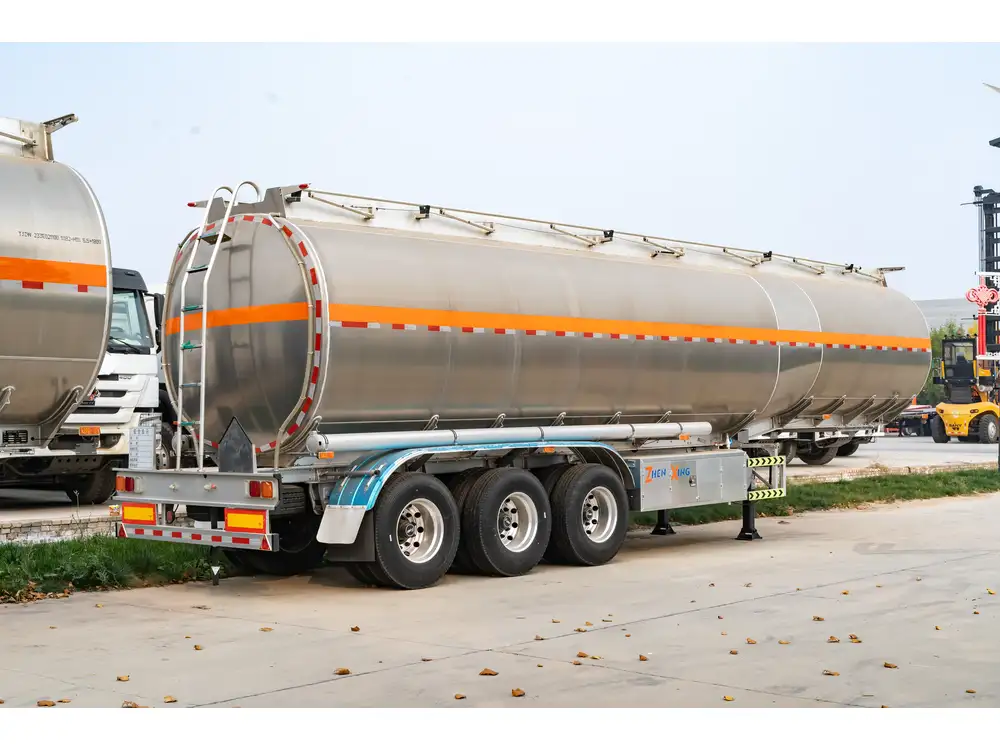
Calculating Tanker Truck Volume
Accurate calculation of tanker truck volume is fundamental for effective logistics planning. Several factors influence volume determination, including tank geometry, material density, and transportation regulations.
Methods of Volume Calculation
- Geometric Calculation:
- Cylindrical Tanks: Volume (V) = π × (radius)^2 × length
- Rectangular Tanks: Volume (V) = length × width × height
- Weight-Based Calculation:
- Volume (V) = Total weight to be transported / Density of the material
- Flow Measurement:
- Utilizing flow meters to measure the volume of liquid passing through the tanker.
Considerations for Accurate Volume Calculation
- Temperature Variations: Temperature can affect the density of materials, influencing volume calculations.
- Material Characteristics: Viscosity and chemical properties may impact the flow and storage within the tanker.
- Regulatory Standards: Compliance with local and international regulations ensures accurate and legal volume transportation.
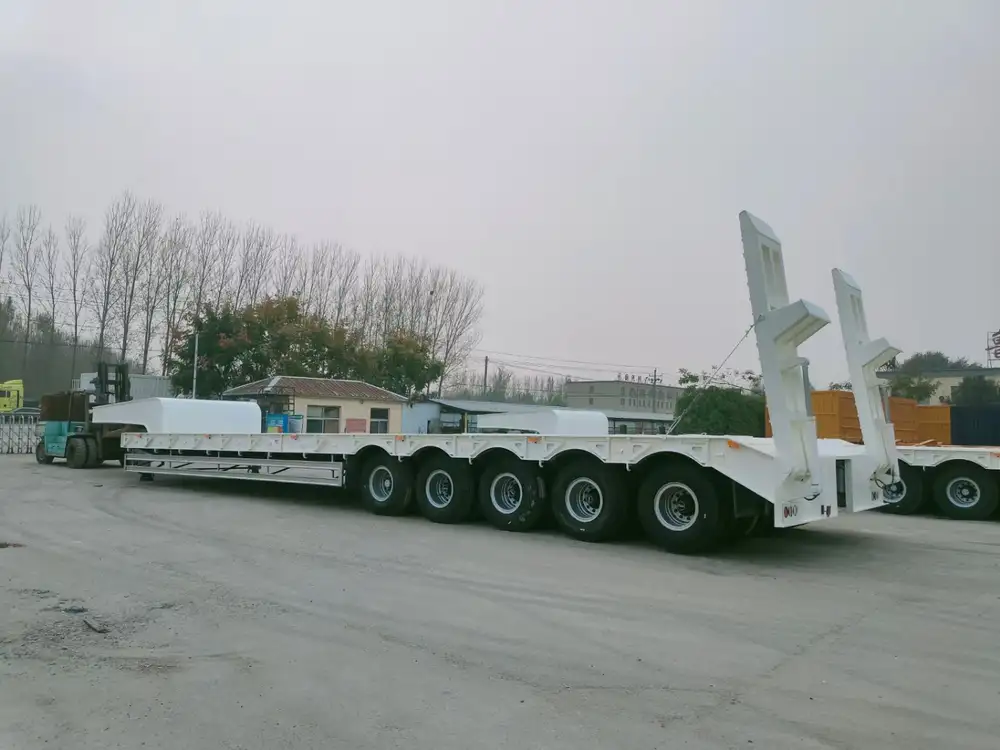
Types of Tanker Trucks and Their Capacities
Tanker trucks come in various configurations, each designed to accommodate specific types of cargo and volume requirements. Understanding the different types helps in selecting the right trailer for your transportation needs.
| Type of Tanker Truck | Common Volume Capacity | Typical Use Cases |
|---|---|---|
| Cylindrical Tankers | 5,000 – 12,000 gallons | Fuel transport, chemicals |
| Rectangular Tankers | 3,000 – 8,000 gallons | Water distribution, food-grade liquids |
| Spherical Tankers | 2,000 – 6,000 gallons | Specialty chemicals, hazardous materials |
| Double-Wall Tankers | Varies | Enhanced safety for hazardous materials |
Cylindrical vs. Rectangular Tankers
- Cylindrical Tankers:
- Higher structural integrity
- Better suited for higher pressure applications
- Typically larger volume capacities
- Rectangular Tankers:
- Easier to produce and transport
- More space-efficient for certain cargo types
- Generally smaller volume capacities
Factors Affecting Tanker Truck Volume
Several elements influence the effective utilization and management of tanker truck volume. Understanding these factors is crucial for optimizing transportation operations.
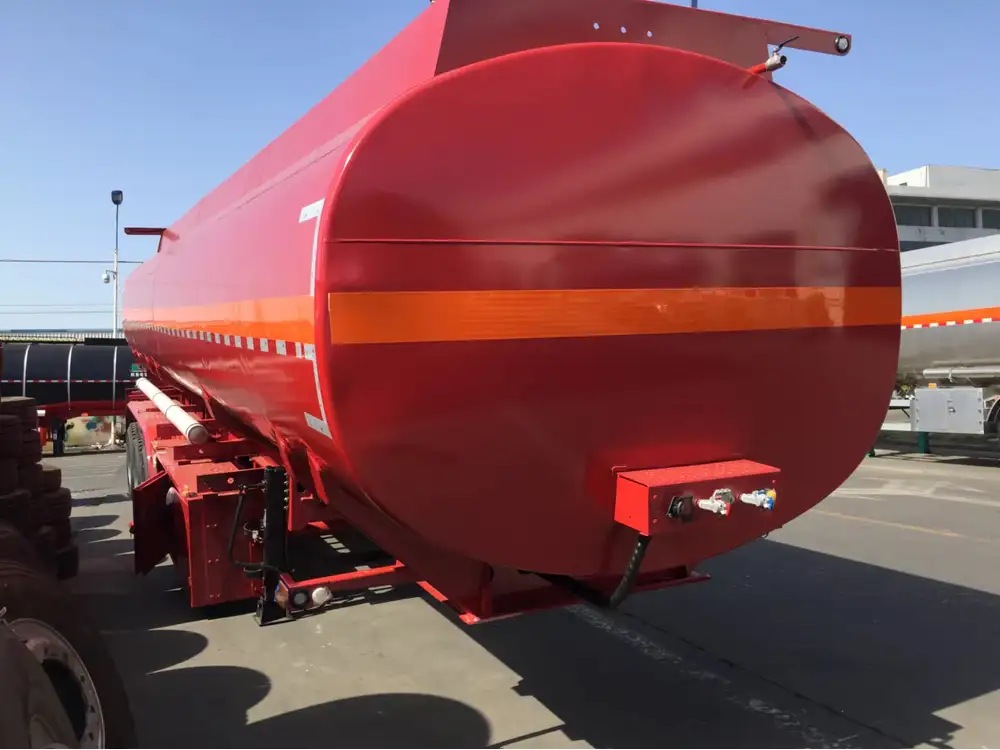
Material Density and Viscosity
The physical properties of the material being transported directly impact the volume calculations and storage requirements. High-density or highly viscous materials may require specialized tanker designs to ensure safe and efficient transport.
Regulatory Compliance
Different regions have specific regulations governing the maximum allowable volume and weight for tanker trucks. Compliance ensures not only legal operation but also enhances safety on the roads.
Load Distribution
Proper distribution of the load within the tanker affects the vehicle’s stability and handling. Uneven load distribution can lead to increased wear and tear, higher fuel consumption, and safety hazards.

Environmental Conditions
Temperature and weather conditions can influence the volume of materials transported. For instance, extreme temperatures may cause materials to expand or contract, affecting the effective volume.
Optimizing Tanker Truck Volume for Efficiency
Optimizing the volume of your tanker trucks involves strategic planning and implementation of best practices to enhance efficiency and reduce operational costs.
Fleet Management Strategies
- Route Optimization: Efficient routing reduces travel time and fuel consumption, maximizing the number of trips per day.
- Maintenance Scheduling: Regular maintenance ensures that tanker trucks operate at peak efficiency, preventing downtime and costly repairs.
- Load Monitoring: Implementing real-time load monitoring systems helps in maintaining optimal volume levels and preventing overloading.
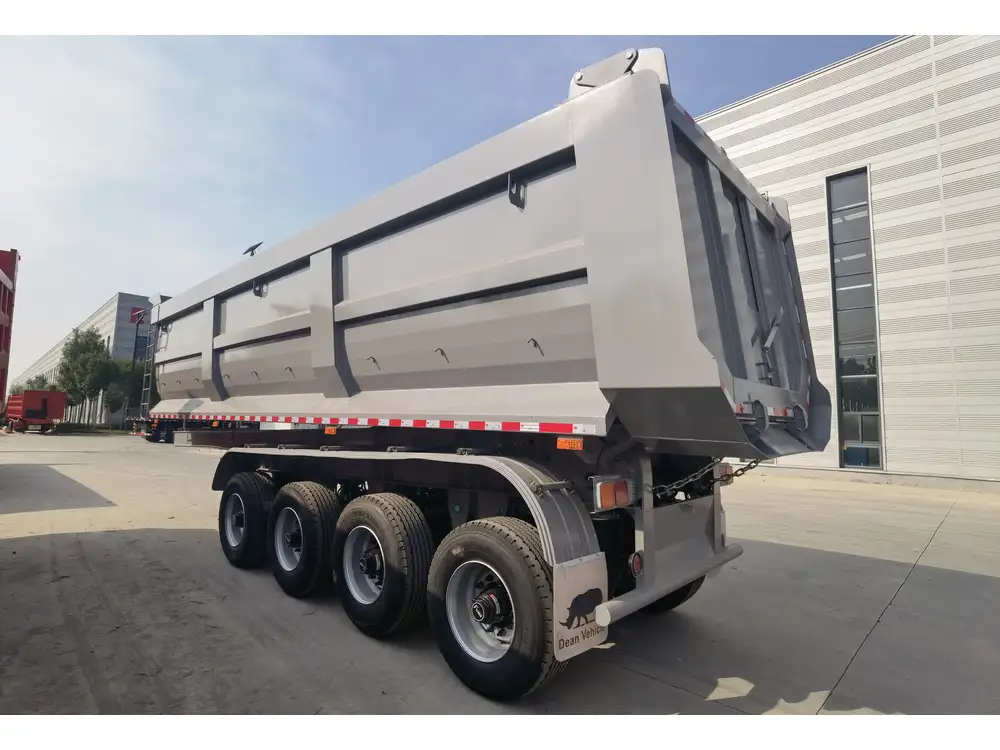
Technological Innovations
- Telematics Systems: Advanced telematics provide real-time data on tanker volume, enabling better decision-making and route adjustments.
- Automated Volume Sensors: These sensors offer precise measurements of internal volume, enhancing accuracy in volume management.
- Fuel Efficiency Technologies: Innovations such as aerodynamic designs and lightweight materials contribute to better fuel economy, allowing more efficient volume utilization.
Training and Education
Educating drivers and logistics personnel on the importance of volume management and best practices ensures consistent adherence to optimization strategies, enhancing overall fleet performance.
Safety Considerations in Tanker Truck Volume Management
Ensuring safety is paramount when managing tanker truck volume. Proper volume control mitigates risks associated with overloading, material spills, and accidents.
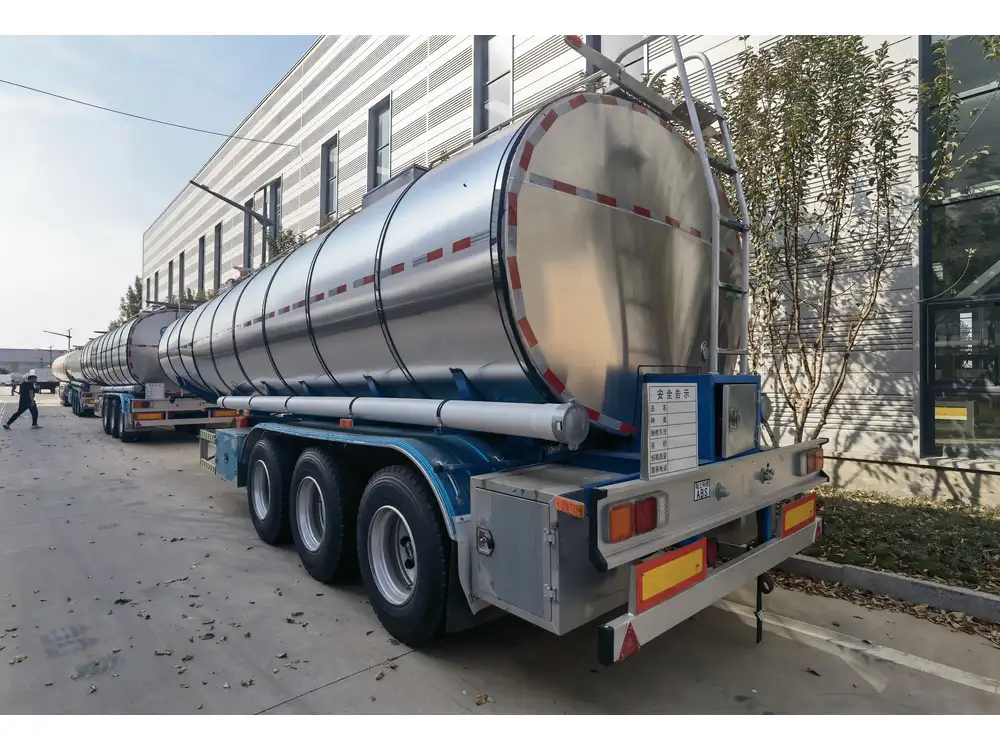
Structural Integrity of Tankers
Using high-quality materials and robust construction techniques ensures that tankers can safely handle the intended volume without compromising structural integrity.
Load Securing Practices
Properly securing the load within the tanker prevents shifting during transit, which can cause instability and increase the likelihood of accidents.
Emergency Protocols
Implementing comprehensive emergency response plans prepares the team to handle unforeseen incidents effectively, minimizing damage and ensuring the safety of personnel and the public.
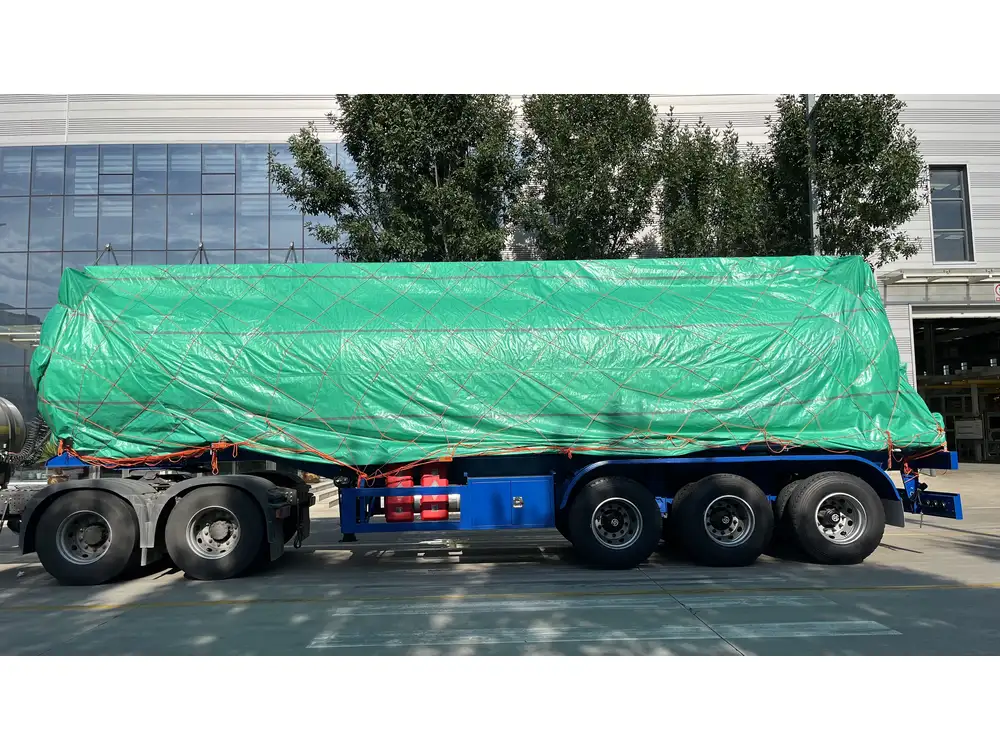
Innovations in Tanker Truck Volume Design
Advancements in tanker trailer design have significantly improved volume management, safety, and efficiency.
Modular Tank Designs
Modular designs allow for customizable volume configurations, enabling operators to adapt their tankers to various transportation needs without significant modifications.
Lightweight Composite Materials
Using composite materials reduces the overall weight of the tanker, allowing for greater volume capacity without exceeding weight limits set by regulations.
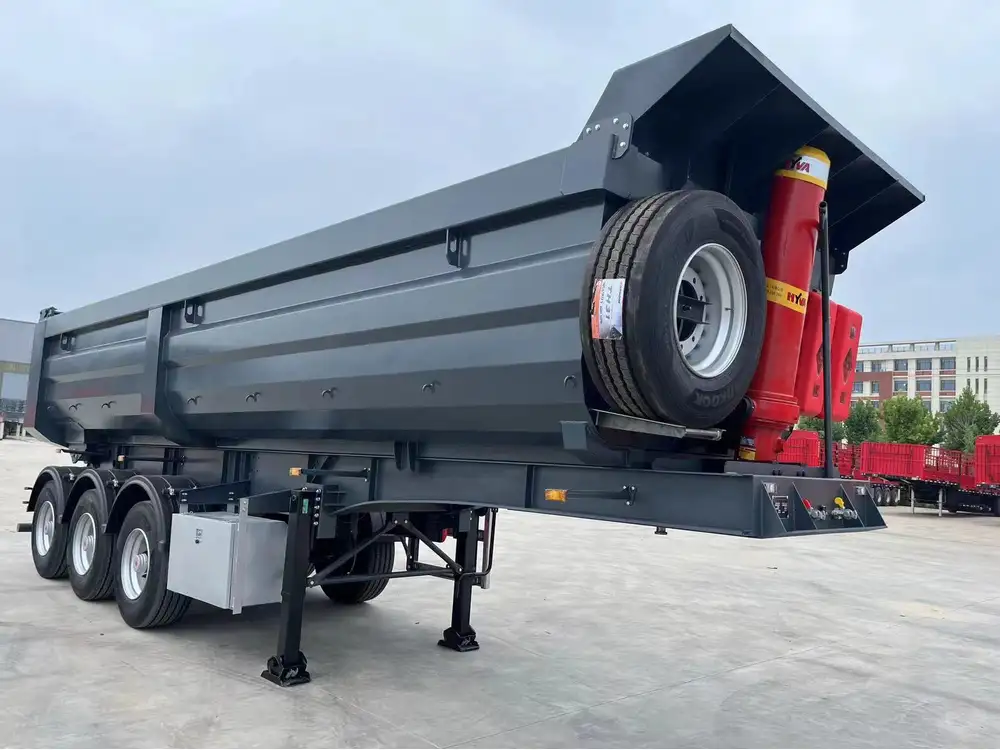
Enhanced Insulation Systems
Advanced insulation improves temperature control within the tanker, ensuring the stability of temperature-sensitive materials and maintaining volume integrity.
CarMax Trailer’s Approach to Tanker Truck Volume
At CarMax Trailer, we prioritize innovation and precision in our tanker trailer designs to meet the diverse needs of our clients.
Customizable Volume Solutions
We offer a range of tanker sizes and configurations, allowing our clients to choose the optimal volume capacity tailored to their specific requirements.
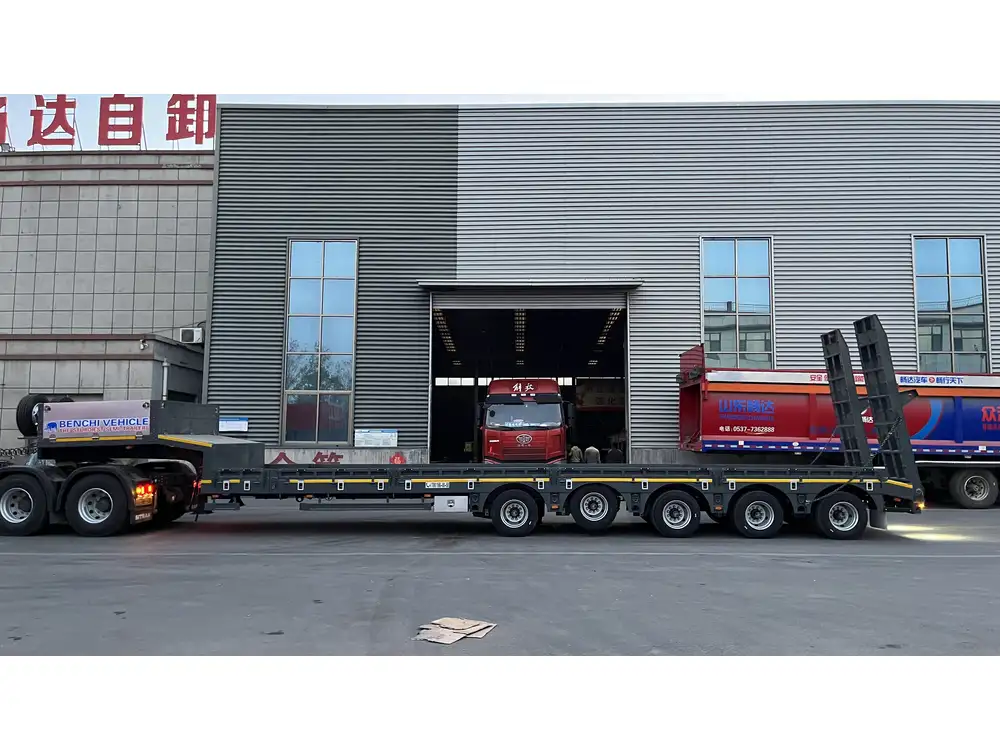
Superior Craftsmanship
Our tankers are built with meticulous attention to detail, ensuring robust construction that can handle high-volume transportation with ease and reliability.
Cutting-Edge Technology Integration
CarMax Trailer incorporates the latest technologies in volume measurement and monitoring, providing our clients with real-time data to manage their fleets effectively.
Sustainability Focus
Our designs emphasize fuel efficiency and reduced emissions, helping clients achieve their sustainability goals while maximizing volume utilization.
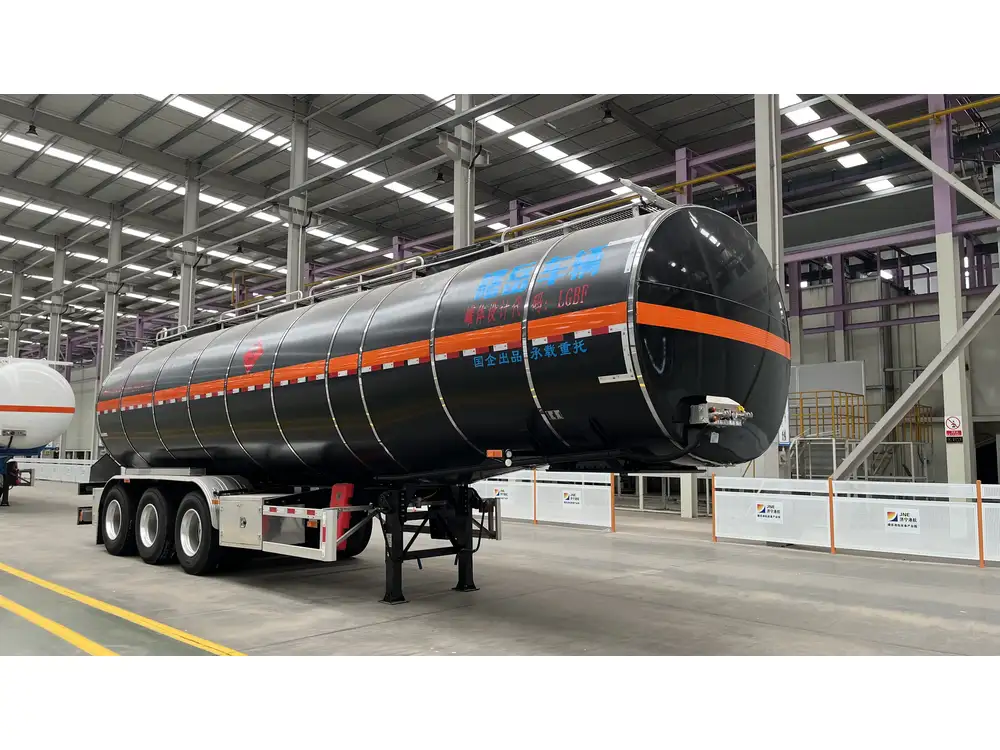
Comparing CarMax Trailer to Other Manufacturers
Choosing the right tanker trailer manufacturer is crucial for ensuring quality and performance. Here’s how CarMax Trailer stands out in the industry:
| Feature | CarMax Trailer | Competitor A | Competitor B |
|---|---|---|---|
| Volume Customization | Highly customizable | Limited options | Moderate options |
| Material Quality | Premium composites | Standard materials | Mixed quality |
| Technological Integration | Advanced telemetry systems | Basic gauges | Limited technology |
| Fuel Efficiency | Optimized designs | Average efficiency | Low efficiency |
| Safety Features | Enhanced safety protocols | Standard safety | Minimal safety features |
Why Choose CarMax Trailer?
- Tailored Solutions: Our customizable tankers are designed to meet the unique volume and operational requirements of each client.
- Quality Assurance: We adhere to stringent quality control standards, ensuring every tanker delivered meets our high-performance benchmarks.
- Innovative Technology: Integration of advanced technologies ensures that our tankers offer superior performance and reliability.
- Customer-Centric Approach: We prioritize our clients’ needs, offering exceptional support and after-sales service to maintain long-term partnerships.
Best Practices for Managing Tanker Truck Volume
Implementing best practices in tanker truck volume management can significantly enhance operational efficiency and safety.
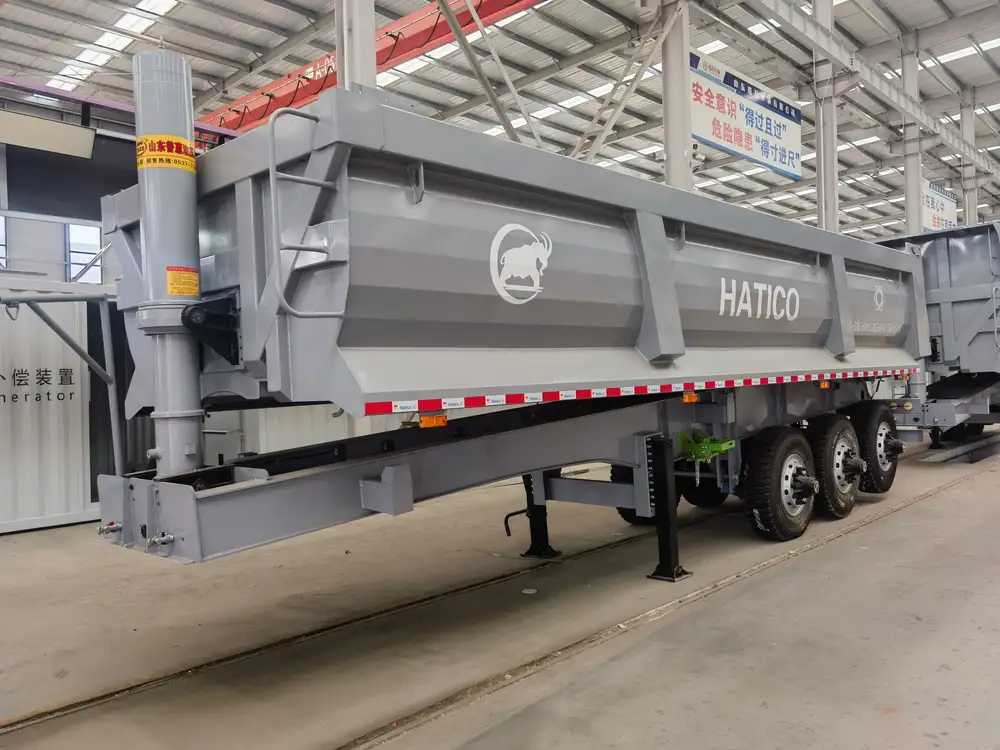
Regular Volume Audits
Conducting regular audits helps in identifying discrepancies between estimated and actual volumes, allowing for timely adjustments and ensuring accuracy in volume management.
Implementing Advanced Monitoring Systems
Advanced monitoring systems provide real-time data on volume levels, enabling proactive management and immediate response to any issues that may arise during transit.
Training Programs for Personnel
Comprehensive training programs educate drivers and logistics personnel on proper volume management techniques, safety protocols, and the use of monitoring technologies.
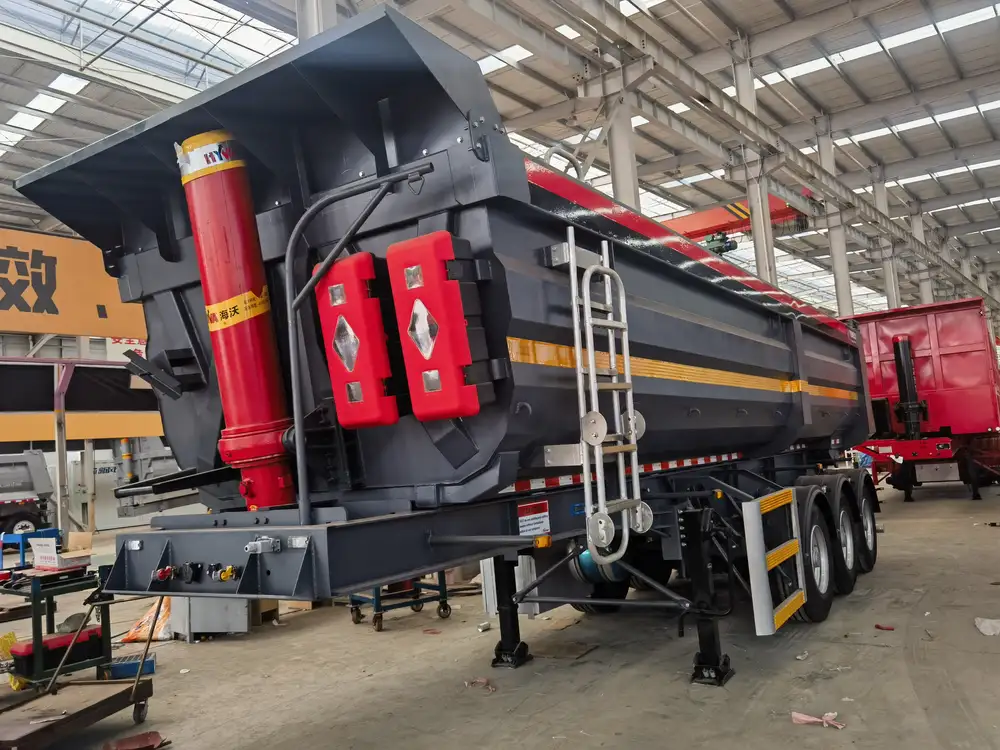
Efficient Loading and Unloading Procedures
Optimizing loading and unloading processes minimizes downtime and ensures that tanker trucks are quickly and safely prepared for their next journey.
The Future of Tanker Truck Volume Management
The landscape of tanker truck volume management is continually evolving, driven by technological advancements and changing industry demands. Future trends include:
- Autonomous Tanker Trucks: Integration of autonomous driving technologies for enhanced precision in volume management and reduced human error.
- Smart Tanker Designs: Incorporation of IoT devices for real-time monitoring and data analytics to optimize volume utilization.
- Eco-Friendly Materials: Development of sustainable materials that offer higher volume capacities with reduced environmental impact.
- Enhanced Safety Standards: Continuous improvement of safety features to accommodate increasing volume capacities without compromising safety.
Conclusion
Mastering tanker truck volume is essential for achieving excellence in logistics and transportation. At CarMax Vehicle, we are committed to providing top-of-the-line tanker trailers that empower our clients to optimize their volume management, enhance operational efficiency, and uphold the highest safety standards. By leveraging advanced technologies, innovative designs, and a customer-centric approach, CarMax Trailer stands as a reliable partner in your transportation endeavors.

Frequently Asked Questions
1. How do I determine the optimal tanker truck volume for my business needs?
Determining the optimal tanker truck volume involves analyzing your average load requirements, delivery frequency, and the nature of the materials being transported. Consider factors such as material density, regulatory limits, and fuel efficiency to select a volume that maximizes payload while minimizing operational costs.
2. What are the key safety features to look for in a tanker truck?
Key safety features include double-wall construction for enhanced containment, automated volume sensors, secure load distribution mechanisms, advanced braking systems, and real-time monitoring technology. These features ensure the safe transport of materials and compliance with safety regulations.
3. How does temperature affect tanker truck volume?
Temperature can influence the density and viscosity of the transported material, potentially causing expansion or contraction within the tanker. It’s important to use tankers with appropriate insulation and temperature control systems to maintain consistent volume integrity under varying environmental conditions.
4. What maintenance practices are essential for preserving tanker truck volume accuracy?
Regular maintenance practices include inspecting and calibrating volume measurement systems, checking for leaks or structural damage, ensuring proper functioning of load distribution mechanisms, and maintaining the overall integrity of the tanker. Scheduled maintenance helps in preserving accurate volume readings and preventing operational issues.
5. Can I customize a tanker trailer to fit specific volume requirements?
Yes, CarMax Trailer offers highly customizable tanker trailers tailored to meet specific volume requirements and operational needs. Our design flexibility allows clients to choose configurations that best suit their transportation demands, ensuring optimal volume utilization and efficiency.



